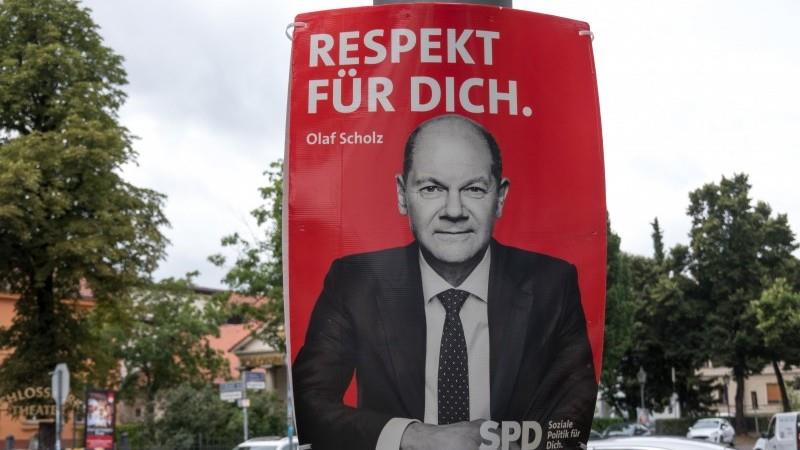
Elections In North Rhine Westphalia Could Bring Tensions In Berlin
On Sunday, 13 million German were eligible to vote in the state of North Rhine Westphalia, the country's most populous state. As so often in the past, state elections are affected by both national and regional factors, issues and politicians. Very often election losers blame 'Berlin' for their losses, while winners see their own regional strength as the reason for victory. In Sunday's elections, it is fair to say that war in Ukraine and the federal government's performance since the September elections clearly left their mark.
According to the projections at 9pm CET, the CDU of incumbent state premier Hendrik Wüst has come in as largest party with 35 percent of the votes; up 2 percentage points from the last elections in 217. The SPD recorded its worst result since the end of World War II, coming in at 27.5%. The biggest election winners were the Greens, rising to 18.5%, from 6.4% in 2017. In contrast, the FDP, which has governed North Rhine-Westphalia in a coalition with the CDU, is projected come in at just above 5%, from 13% in 2017.
With these results, the current CDU/FDP government can no longer stay in government. A coalition of CDU and Greens looks most likely, even if a coalition of the SPD and Greens could currently also be possible.
Impact of regional elections on federal politics and policiesAlready last week, the elections in the much smaller state of Schleswig Holstein brought a painful defeat for Olaf Scholz's SPD. The CDU's votes went up by 11.4 percentage points to 43.4%, while the SPD's votes went down by the same amount to 16%. The Greens also improved their popular vote, while the FDP's votes collapsed.
Even though these were 'only' two regional state elections, there are a few observations which could shape German politics and policies in the coming months:
- The return of the Volkspartei (people's party). At last year's federal elections, the winning party, Olaf Scholz' SPD, had 25.7% of all votes. The times in which the winning party received 35% to 45% and often only needed a junior coalition partner, seemed to be over. The elections in North Rhine Westphalia, Schleswig Holstein and, earlier this year, Saarland saw the winning party again getting between 35% and close to 50% of the votes. At least in times of uncertainty, Germans seem to long for stability. The fragmentation of the political system has been completely reversed. Both populist left-wing and right-wing parties, AfD and Die Linke, saw their votes dropping significantly.
- SPD under pressure. With two important defeats in a week, the SPD's grassroots could become uneasy. Pressure on Olaf Scholz to demonstrate clearer leadership could increase. Don't forget that last year not everyone in the party embraced Scholz. It was only the party grassroots that embraced Scholz's winning streak in the weeks leading to the federal elections.
- Greens on the rise. The Greens' good performance in the last two regional elections does not come as a surprise. The two leading Green ministers in the federal government, Robert Habeck (Economy and Environment) and Annalena Baerbock (Foreign Affairs) are very visible, have communicated well and enjoying high popularity. The current tailwinds for the Greens could accelerate the energy transition.
- Finally, the collapse of the FDP. North Rhine Westphalia is the stamping ground of German finance minister Christian Lindner. Two sharp defeats, bringing the FDP again close to the 5% threshold, are likely to put pressure on the FDP in the federal government. Policies currently supported by Lindner as minister of finance, including significant fiscal stimulus and higher deficits, more government support and potentially more fiscal burden sharing in Europe, are not very popular among FDP voters.
The good thing for the federal government is that the next regional state elections will only come in October (in Lower Saxony). The two recent elections will not go down well, at least not with two of the three coalition partners in Berlin. This does not mean that there could be a government crisis any time soon. Not with less than one year in office. But the pressure to sharpen each party's profile will increase and this by nature will eventually increase tensions in any three-party-coalition.

Legal Disclaimer:
MENAFN provides the
information “as is” without warranty of any kind. We do not accept
any responsibility or liability for the accuracy, content, images,
videos, licenses, completeness, legality, or reliability of the information
contained in this article. If you have any complaints or copyright
issues related to this article, kindly contact the provider above.


















Comments
No comment